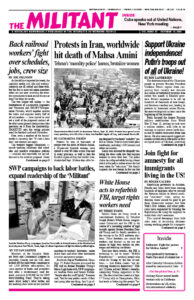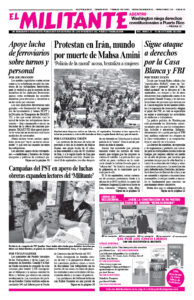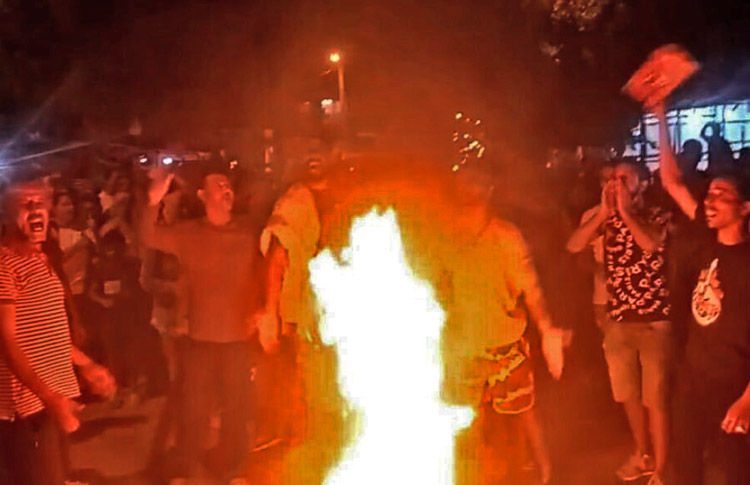Hundreds of working people in Tunisia protested in the capital Sept. 25 against rising prices and food shortages, amid a deepening capitalist political crisis engulfing the country.
Demonstrators chanted, “We can’t support crazy price hikes,” and “Jobs, freedom and national dignity.” In the working-class Douar Hicher district of Tunis, the capital, protesters, above, lifted loaves of bread in the air to show their determination to fight for basic necessities. Many people spend hours searching for sugar, milk, butter, cooking oil and rice, facing empty shelves in supermarkets and bakeries.
The Tunisian government raised the price of cooking gas cylinders by 14% this month and other fuel prices for the fourth time this year. These changes, which hit working people the hardest, were demanded by the International Monetary Fund as a condition for the country’s capitalist rulers to obtain loans to “restructure” the government’s huge, unpayable debt to wealthy bondholders.
While inflation is at nearly 9% over the year, unemployment is above 16% and a massive 38.5% for those under 25. At the same time, opposition is mounting to moves by President Kais Saied to increase his executive powers. He suspended parliament in July 2021, firing the prime minister and ruling by decree.
Elsewhere, the IMF is concerned about repayments for the huge loans it has pressed onto governments in Africa, Asia and Latin America. IMF loan commitments already stand at over $268 billion, but it will rake in nearly double that, some $436 billion from debt repayments from 55 countries over the next six years. The price of these loans is IMF demands on governments to slash aid and social programs that benefit working people.


